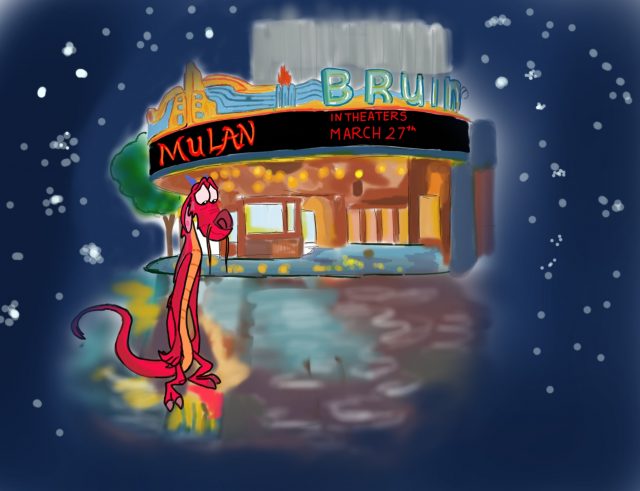History repeats itself, and so does art. With films, video games and even books being flooded with sequels, remakes and spinoffs, audiences in recent years have appeared to embrace familiarity over novelty. In Recent Rewinds, columnist Phillip Leung explores the entertainment industry’s inclination toward reimagining and building on old stories.
The “Mulan” remake will bring honor to its characters – and a huge box-office haul.
Part of the recent trend of reimagining old Disney classics, “Mulan” diverges from other Disney live-action remakes, making multiple noteworthy changes from the original animated film. Such a large departure from the classic remake formula is likely Disney’s strategy to appeal to the lucrative Chinese market while producing a more historically accurate film as a byproduct.
[Related: Recent Rewinds: Overwatch 2 will expand on lore, characters, offer more game play modes]
Something audiences immediately noticed when the trailer for “Mulan” came out was that the remake would not be a musical, meaning classic songs like “I’ll Make a Man Out of You” and “Reflection” would be absent. Such an omission is in glaring contrast to remakes such as “Beauty and the Beast” and “The Lion King,” which adapted virtually every song in the originals – and then some. Fans were also disheartened by the absence of Mushu, Mulan’s standout dragon sidekick voiced by Eddie Murphy in the original film.
When asked about the changes, director Niki Caro said that while she respected the songs and characters of the original film, they wouldn’t fit into the more realistic tone she had intended for the remake. Additionally, maintaining relative cultural accuracy is especially important for “Mulan,” because unlike remakes such as “Aladdin,” which reference aspects of several different cultures, the ballad from which “Mulan” originates is a distinctly Chinese story. Thus, adaptations that deviate from the story’s historical context could be interpreted as cultural appropriation, especially when coming from a Western film studio such as Disney.
Such appropriation plagued the original 1998 animated film, which was a financial failure in China. Many Chinese audiences found the portrayal of Mulan to be a very Westernized take on the original ballad. They particularly criticized the individualistic traits of the animated Mulan along with Mushu’s comedic role as a clumsy dragon, which some saw as uncharacteristic of Chinese dragons. However, audiences seem more excited about the live-action remake, which attempts to be more faithful to Chinese culture – if only slightly.
Some aspects of the remake, while certainly Chinese, have nevertheless been used inappropriately according to some viewers. For instance, the trailer depicts the people of Mulan’s village living in tulou houses. Such architecture was primarily used in Fujian, a province in southern China, between the 13th and 20th centuries. According to the original ballad, however, Mulan’s character lived in northern China during the Northern and Southern dynasties. As such, the remake is still not a perfectly accurate portrayal of China in the original story, but many fans remain excited for the film nevertheless.
[Related: Recent Rewinds: Spin-off chapter explores how ‘Death Note’ would play out in modern day]
Fans are also excited for a more mature rendition of “Mulan,” with the film being the first Disney live-action remake to receive a PG-13 rating. Disney’s decision for a more-realistic rendition of “Mulan” seems to have paid off, with many viewers – Chinese or otherwise – excited for the film. By taking out the silly characters and catchy songs, Disney is attempting to show that it is no longer taking the legend of Mulan for granted. Though the more-mature rating may seem to initially exclude audiences such as young children, it also invites a new group of viewers by giving them something fresh to look forward to.
As opposed to relying on nostalgia and the catchy songs of the original film, Disney decided on the more-logical choice to improve its portrayal of Chinese culture while optimizing the remake as a live-action blockbuster. The iconic musical numbers and animal characters served the animated original well, but they’ve been exchanged for more action and a star-studded cast – a fairly reliable formula for box-office success.
While Mushu will certainly be missed, the new “Mulan” stands to be a more refined adaptation of a classically empowering story.

